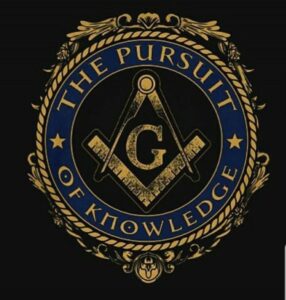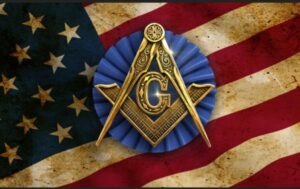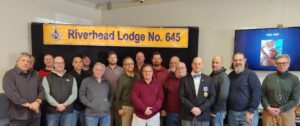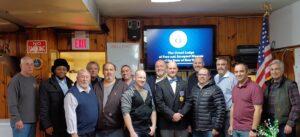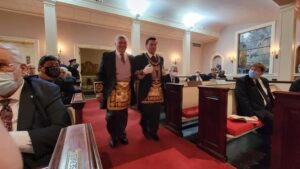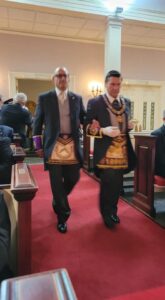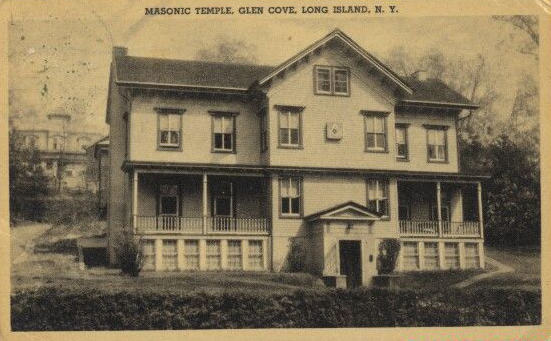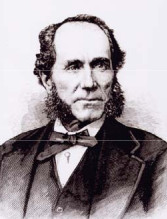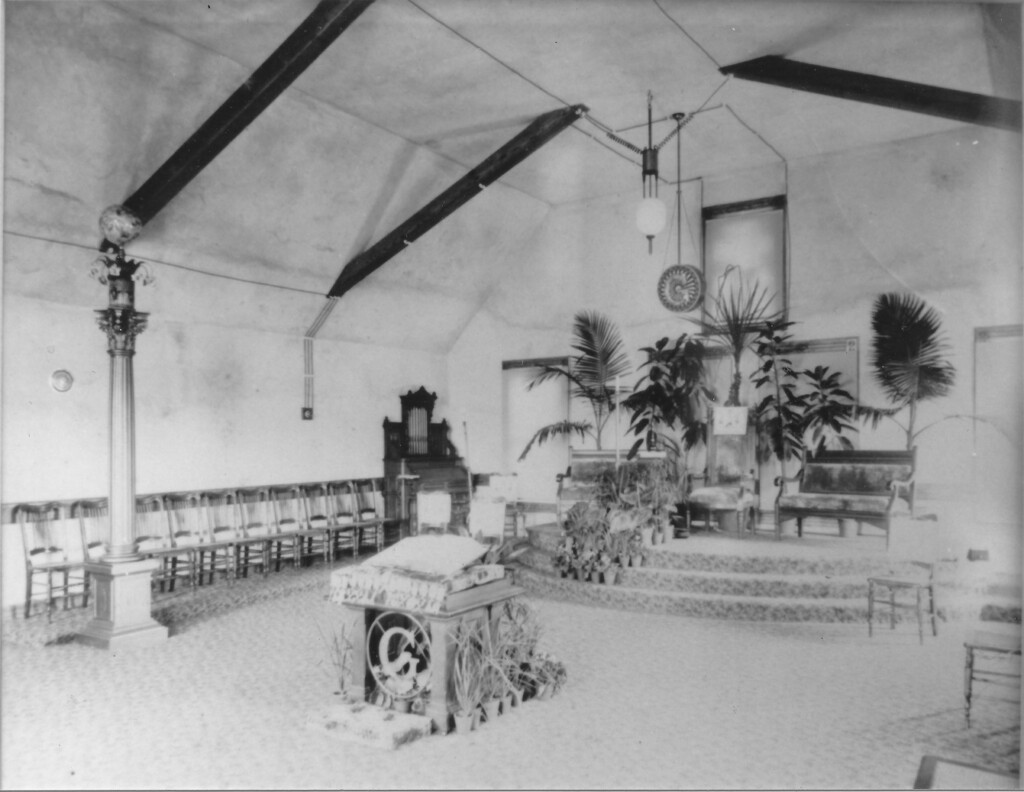The Masonic Service Center at Jephtha Lodge
By W:. Ronald J. Seifried, DSA
The month of November has one day set aside to honor all the military veterans who have served the United States Armed Forces. November 11th was chosen for Veterans Day to mark the end of World War I, which was on the 11th hour of the 11th day of the 11th month in 1918. Originally named Armistice Day, major U.S. veteran organizations petitioned to rename it Veterans Day in 1954.
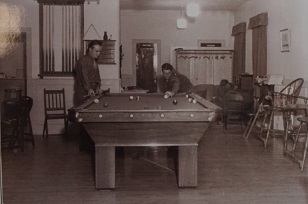
It’s no secret Freemasons support those who serve in the military. Many Masons were veterans themselves, and the fraternity had its strongest membership growth in the postwar years, including the Civil War, World War I, World War II and the Korean War. The Masonic Service Association dates to the First World War, when Masons and the federal government were looking to combine their efforts in the support for American troops. The Masonic Service Association was created to be a conduit between the government and the 49 U.S. Grand Lodges operating at the time. The Association expanded into four separate sub-groups: Education, Disaster Relief, Media Relations, and VA Hospital Visitation.
A bearded, bespectacled older gentleman looked across the long procession of brave men, gazing admirably at how local towns were able to organize fire departments across the rural, pre-suburbia
Masonic community activities during World War II included the creation of a national network of U.S.O.- like service clubs by state grand lodges and the Masonic Service Association. During World War II, 90 Masonic Service Centers were formed to service the military throughout the U.S. In the State of New York, eleven Masonic Service Centers were active during the war, each supplying a place that provided meals, recreation, transportation, letter-writing material, and free long-distance phone calls for the servicemen.
The program was developed by Masonic Service Center director Carl H. Claudy and Missouri Past Grand Master, Senator Harry S. Truman.
Brother Truman was raised a Master Mason in 1909 in Belton Lodge, Missouri. He was a charter member of Grandview Lodge and served as its first Worshipful Master. In 1940, during his Senate reelection campaign, Truman was elected Grand Master of the Grand Lodge of Missouri. Truman later stated that his election as Grand Master assured his victory in the general election, one further step
closer toward the Presidency. Active in several concordant bodies, including 33° Sovereign Grand Inspector General and an Honorary Member of the Supreme Council at the Supreme Council A.A.S.R. Southern Jurisdiction; member of the Shriners and the Royal Order of Jesters.
Raised as a Master Mason in 1908 in Lodge Harmony No. 17 in Washington D.C., Claudy later served as its Master in 1932 and was elected Grand Master of the District of Columbia in 1943. A prolific author on aviation and photography, Claudy authored over 350 Masonic Talk Bulletins, over a dozen Masonic books
and was the associate editor of the Masonic Service Association magazine, The Master Mason for several years.
But it was the future President who became the national spokesperson of Freemasonry’s support of the war effort, quietly sending out the Masonic signal of distress to all brothers in the nations time of need.
In one radio address early in the war, Brother Truman stated “In the last war, we had 49 Grand Lodges trying to do the work of one. In unity there is strength. This time when our boys come marching home victorious, none will look askance and say where was Freemasonry in this hour of need? Approximately 10% of the boys in the service are Freemasons. Another 15% are close kin of Freemasons. Through the Association, Freemasonry is meeting the challenge of their great need. At this very moment in foxholes and on shipboard, beneath the sea and in the air, countless hands are being clasped in fraternal recognition as brothers find one another in the darkness as well as in the daylight. And countless fathers bravely wishing Godspeed to their departing sons are saying ‘Boy, when your hour of darkness and loneliness come, find a Freemason, and tell him you are the son of a Freemason, and you will find a friend.’ “
“And through our great Association the flower of Freemasonry is being made to bloom in the rocky soil of war’s desolation. And the fruits of Freemasonry are being shared by every boy and girl who wears the uniform. There’s nothing for sale in Masonic service centers. Neither mineral nor metal is the price of Freemasonry service to our boys, and yet our centers are supported without fanfare or public appeal because in our heart glows the great light of charity; unostentatious, but sincere. Each of us giving generously because we have seen the light and heard the cry of the widow’s son.”
The Masonic Service Centers were open to all service members, no matter if they were Freemasons or related to a brother. The Centers were not used as a recruitment center for prospective members, but a place where recreation and community events would help the soldiers keep their minds off the war and enjoy some fellowship. The volunteer hosts and hostesses at the Service Centers would also write thousands of letters to Masonic brothers overseas, offering words of encouragement and support.
Only two Masonic Service Centers were on Long Island for military servicemen: Bethpage No. 975 in Farmingdale and Jephtha No. 494 in Huntington. The Bethpage lodge was co-sponsored with the Bethpage O.E.S. No. 651, and for the duration of the war, thousands of servicemen were entertained with coffee, cake, books, and games by the Farmingdale Service Organization (F.S.O.). All the items were donated to the Service Center and the Bethpage
brothers received letters of gratitude from the deployed servicemen for many years.
The second Service Center on Long Island was only eleven miles away in Huntington Village, where Jephtha No. 494 entertained 6,447 servicemen.
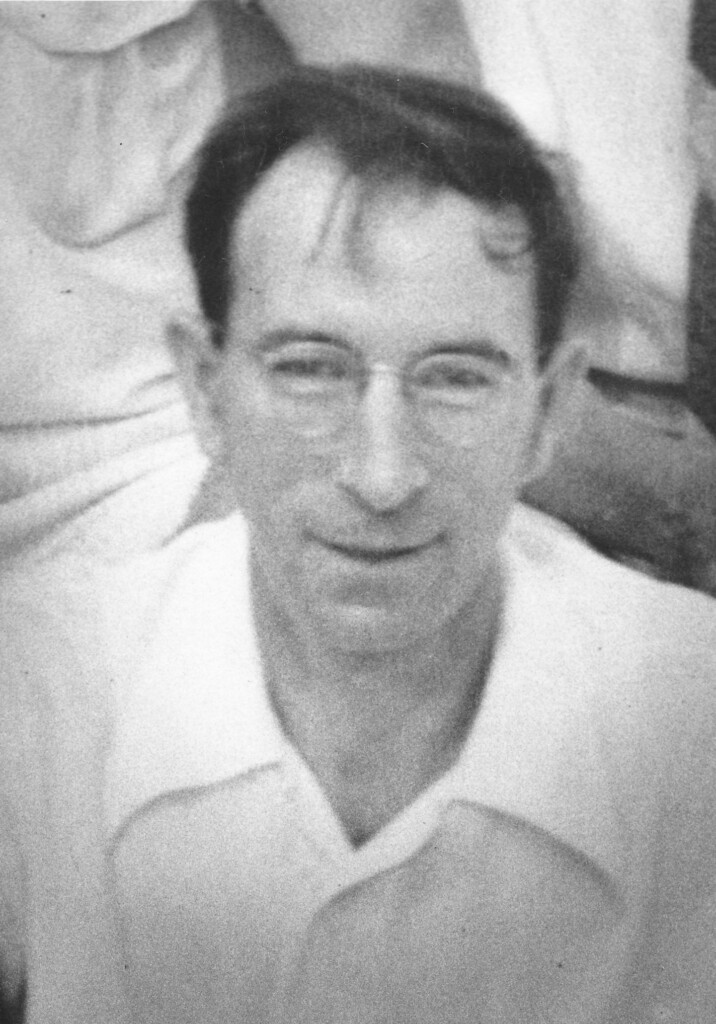
First proposed by Junior Past Master W:. Dana J. Tuthill at the October 27, 1942, Stated Communication, he spoke “of the boys in the Armed Service and their recreation while on a pass on furlough while in Huntington.” Tuthill proposed the second-floor recreation room could be used for the local servicemen. A motion was made and seconded the room was to be used by the men in the armed services, the Temple be properly posted, and to have hostesses and members of the lodge to supervise. On Saturday, November 7, 1942, the Jephtha Lodge Recreation Room was first open to the servicemen, with hours set for reading between 9AM-11AM and recreation from 2PM-11PM.
Within two weeks, the local Service Center was becoming very popular, with up to 200 servicemen spending time at the lodge on a weekly basis. The Trustees realized the 37-year-old lodge building needed some touching up and got to work cleaning the walls, painting the tiled ceiling, installing wainscotting (still in the recreation room today), removing old pictures and even donating a stuffed deer head to the local Elks Lodge. The Trustees spent $500, which is the equivalent of $8,400 in 2021, a tidy sum for a rural, all-volunteer organization dependent on donations.
By February 1943, two new Army-Navy Schools were setup near Huntington, and the local servicemen needed places to go during their downtime. More volunteers were needed to maintain the now, very active lodge building. By the spring of 1943, the local hostesses approached the Trustees for permission to have a “tea dance” on Sunday afternoons. The Service Center hostesses offered to pay fifty cents each to raise funds for one dance with each serviceman. The Jephtha brothers were opposed to the plan as presented and offered to cover all financial obligations for any dance for the servicemen.
Tuthill reported over 300 sailors and soldiers visited the building during June 1943, leading to the need of a portable lunch counter, which was followed by a donation of an ice box by Brother Raymond Brush.
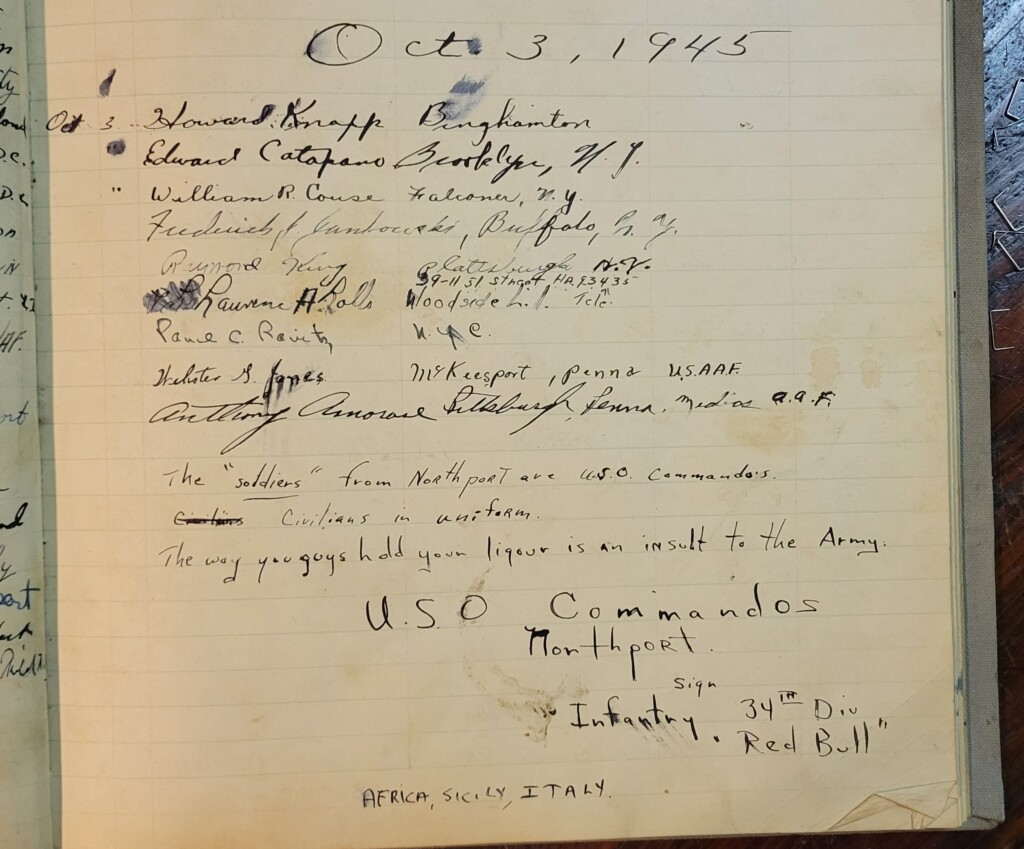
October 3, 1945
Preserved in the Jephtha archives is a visitors’ register, signed by thousands of servicemen between September 1943 and October 1945. Each signature carries a story of the brave sailors and soldiers who defended our great nation
during World War II. The servicemen were not just local Long Islanders, but others who travelled a great distance to be entertained at Jephtha Lodge during some well-deserved R&R. Cities of Phoenix, San Francisco and Cleveland were
represented, as well as the small towns of Metcalf, Illinois and Ellensburg, Washington.
The fraternal bonds between these once strangers became much stronger during their time in the service, which is briefly captured in the final entry of the register from the “Northport U.S.O. Commandos,” survivors of the campaigns in Africa and Sicily.
The post The Masonic Service Center at Jephtha Lodge appeared first on Jephtha.com.
